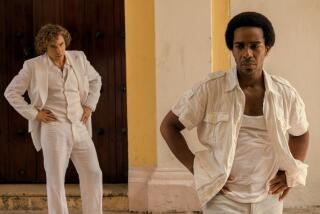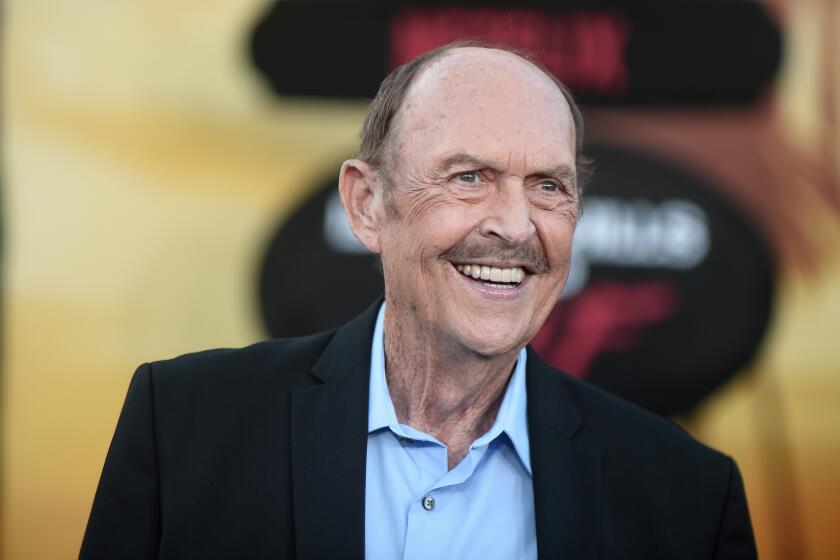‘Panther’ Draws Ire of Horowitz’s Organization : Movies: Former radio talk-show host says the film is inaccurate and incites violence. The film’s director says, ‘It is not a call to arms, but a call to consciousness.’
Through his organization, the Center for the Study of Popular Culture, former radio talk-show host David Horowitz is planning to take out ads in movie industry trade publications this week branding Mario Van Peebles’ “Panther” a “two-hour lie.” In addition, Horowitz may protest the film’s premiere Tuesday night or possibly its official debut Wednesday.
“Panther” details the birth of the controversial African American sociopolitical organization the Black Panthers in the 1960s and its problems with local and national law enforcement organizations. The $9-million film was financed by Polygram Films and is being distributed by Gramercy Pictures on more than 700 screens nationwide Wednesday.
The film was directed and produced by Van Peebles, who previously directed “New Jack City” and “Posse.” It is based on a screenplay by his father, Melvin Van Peebles, the iconoclastic creator of the ‘60s breakthrough film “Sweet Sweetback’s Baadasssss Song.”
Horowitz, a former Ramparts magazine editor who says he was involved with the Panthers in the ‘70s, claims he has seen Van Peebles’ film and found it “a dangerous, paranoid Oliver Stone-esque myth.” Horowitz claims the film glorifies “extremists” and “gangsters.”
“It’s a lie from beginning to end,” says Horowitz, adding that the film incites violence. In particular, he singles out the film’s assertion that the U.S. government was involved in flooding African American neighborhoods with drugs.
*
In a prepared statement, Gramercy Pictures addressed these claims by stressing that the story is a fictionalized account, which is nonetheless “substantially grounded in important historical fact for that period of time . . . ‘Panther’ is intended to stimulate thought as well as to entertain.”
Van Peebles echoed those claims. “All the (political) speeches in the film are based on transcripts and courtroom documents,” says the director.
And while Horowitz expresses concern that the film could incite violence, Van Peebles counters that “it is not a call to arms, but a call to consciousness.” Van Peebles defends Horowitz’s right to protest and to differ with the film, saying: “He’s got his opinion and one of the cool things about America is your First Amendment right to express it.”
Horowitz says he’s focusing on the trade publications rather than the consumer press because he’s trying to reach opinion makers in the film industry.
“It’s a way to put moral pressure (on the industry) to be more responsible,” he says. Also, he adds, he doesn’t have the resources to buy ads in consumer publications.
As for any planned protests, Horowitz would only say that “we will be visible during the opening week,” refusing to specify whether the Center for the Study of Popular Culture will picket Tuesday night’s premiere at the Academy of Motion Pictures Arts and Sciences theater in Beverly Hills or opening day at local theaters. According to a Gramercy spokeswoman, there are no plans for heightened security at the premiere.
More to Read
Only good movies
Get the Indie Focus newsletter, Mark Olsen's weekly guide to the world of cinema.
You may occasionally receive promotional content from the Los Angeles Times.










